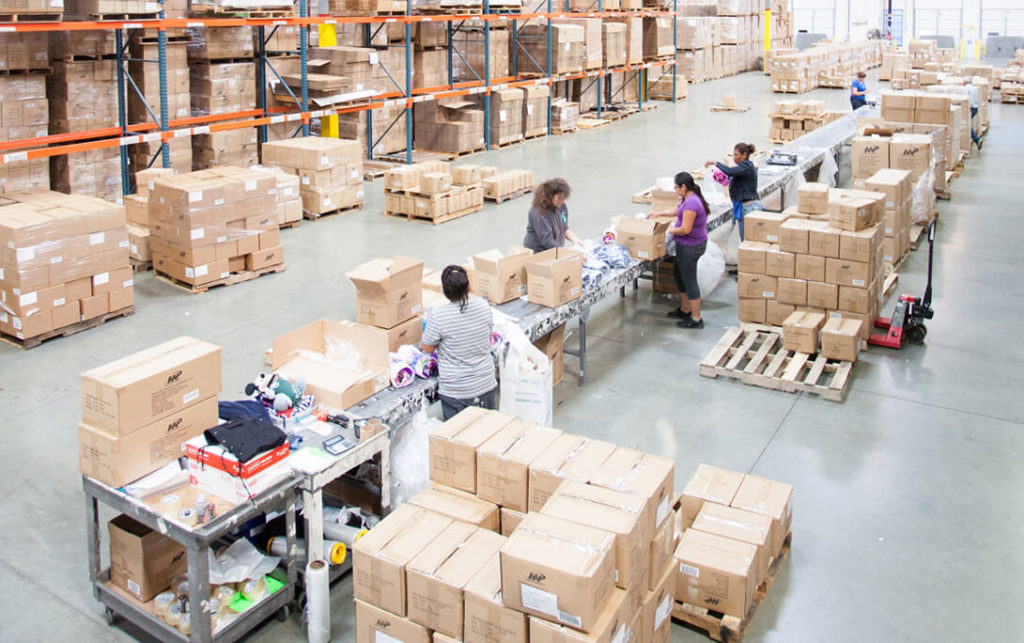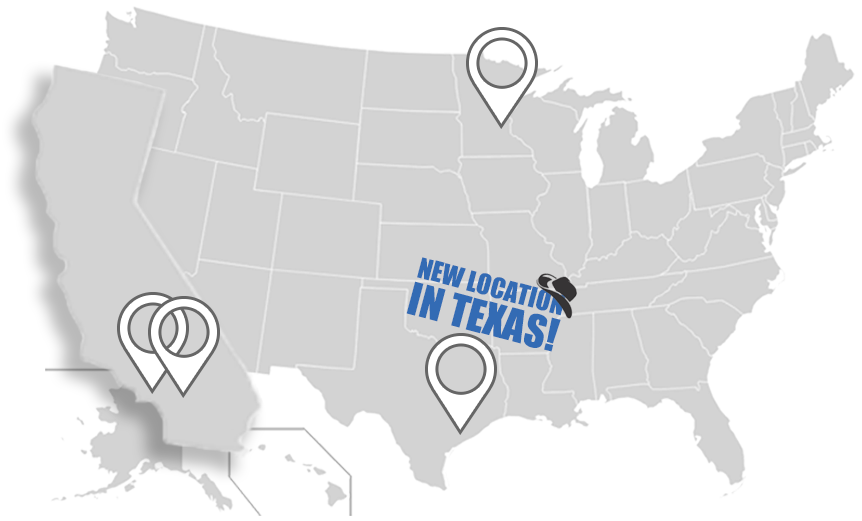The ability to deliver goods efficiently and quickly to your customers is a major factor in the growth of your e-commerce operations. Refining your warehouse management allows you to optimize the way you store, handle, and ship products. While many companies keep order fulfillment and logistics in-house, some choose to work with third-party logistics (3PL) providers – also called simply 3PLs. Since handling your own logistics can be a large source of expense, you may find third-party logistics to be a cost-effective solution that frees your time to center on your core business.

What is logistics?
Third-party logistics may seem to be a dense technical term. However, it is easy to understand once you break it into its parts. Let’s look at logistics first.
Logistics is the planning and execution of efficient storage and transportation of products between their origins and customers. Initially used for managing the movement of goods, equipment, and personnel within the military, today logistics typically references the movements of commercial goods between points in the supply chain. Excellent logistics is both cost-effective and fast.
Success with logistics management meets the following needs:
- having the goods you need when you need them;
- getting them in impeccable condition to the proper location; and
- delivering them to the right customer, whether internal or external.
What is 3PL?
3PL is simply having an expert third-party organization that specializes in logistics manage and perform this part of your business for you. Experts on managing the various elements of fulfillment and procurement, 3PL providers offer outsourced logistics services. You can get powerful warehouse management and distribution through a 3PL while not having to incur the expenses of personnel training and management, equipment handling, facilities, and vehicles.
Third-party logistics does not need to be comprehensive but applies to any service related to storage or shipment. The functions organizations typically seek from 3PL providers include the following:
- fulfillment services including pick, pack, and dispatch;
- supply-chain stock picking;
- local, nationwide, and worldwide shipment of products;
- last-mile delivery; and
- compliance with transportation laws locally, nationally, and internationally.
Difference between 3PL & fulfillment
Another term that is typically associated with e-commerce is fulfillment. In contrast to the broader realms of logistics and 3PL, fulfillment is simply steps taken by a merchant to deliver orders to customers. This concept specifically refers to the process by which you receive, package, and ship product orders. The fulfillment process includes inventory storage, picking and packing, and shipping orders.
Example of how 3PL works
While a book publisher has experience in hiring and contracting with authors, editors, and graphic designers, they do not want to handle the book ordering and shipment process. The book company works with a 3PL to fulfill orders and ship its freight.
Rather than maintain a supply and distribution capacity in-house, the publisher is able to contain costs and focus on book production through a 3PL services contract.
Why work with a 3PL?
Beyond allowing you to focus on other aspects of your business, there are various other reasons that companies form partnerships with third-party logistics services. Five of the top reasons are the below:
- risk mitigation – By having a third-party handle logistics, you pass off the responsibilities it entails. If goods are lost or damaged, you are protected. If shipment is delayed, the 3PL must expeditiously find an alternative way to fulfill the orders.
- insight – You can benefit from the knowledge and experience of a third-party specialist, particularly if you are just launching. The logistics operations of your business can be immediately improved as they are guided by specialists in the field.
- cost reduction & savings – Working with a 3PL makes you part of a larger operation. Since these organizations have many different customers, you gain access to that higher order frequency and volume. In turn, you take advantage of greater negotiating leverage with carriers. Plus, you can save significantly by not having to maintain your own staff and space.
- stronger customer experience — Through the more established and efficient distribution network of a 3PL, you can expedite delivery. Making delivery ultra-fast with next-day or same-day options is increasingly critical given the Amazon effect on customer expectations.
- scalability — Typically the demand for businesses’ goods will rise and fall at different times of year. Instead of having to invest capital for a level of operations you may not always need, you can better manage your peaks and valleys with a 3PL.
Your 3PL strategy
While you may be interested in exploring third-party logistics, selecting the right 3PL is critical to your success. At Distribution Alternatives, we have been distributing merchandise for more than 80 years. Explore our flexible and accommodating 3PL solutions here.

